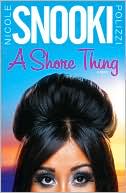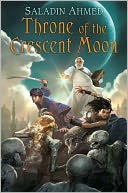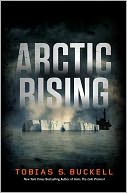Please see http://www.jimchines.com/2013/07/reporting-sexual-harassment-2013/ for the most current version of this post.
#
About a year ago, I put together a resource post about reporting sexual harassment in science fiction and fandom circles. Given that anything more than a week old is ancient internet history, I figured it was worth reposting.
I want to make it as clear as I can that if you’ve been sexually harassed, it’s your choice whether or not to report that harassment. It’s not an easy choice, and nobody can guarantee the outcome. But I can tell you that if someone has harassed you, it’s 99% certain that he (or she) has done it to others. You’re not alone.
Reporting to Publishers:
As a general rule, if you’ve been sexually harassed by an editor or another employee of a publisher, complaints can be directed to the publisher’s H.R. department. Please note that reporting to H.R. will usually trigger a formal, legal response.
I’ve spoken to people at several publishers to get names and contact information for complaints, both formal and informal. I’ve put asterisks by the publishers where I spoke with someone directly.
- Ace: See Penguin, below.
- Baen*: Toni Weisskopf, toni -at- baen.com. From Toni, “You would come to me with any complaint about the company.”
- DAW*: Sheila Gilbert (sheila.gilbert -at- us.penguingroup.com) or Betsy Wolheim (betsy.wolheim -at- us.penguingroup.com). They can be reached during normal office hours, Tuesday through Thursday.
- Del Rey/Spectra*: HumanResources -at- randomhouse.com.
- Edge*: Brian Hades (publisher -at- hadespublications.com).
- Harper Collins: feedback2 -at- harpercollins.com.
- Orbit: Andrea Weinzimer, VP of Human Resources. andrea.weinzimer -at- hbgusa.com. Inappropriate conduct can also be brought up with the publisher, Tim Holman tim.holman -at- hbgusa.com.
- Penguin: Contact page links to an e-mail submission form.
- Random House: Contact page has some info.
- Roc: See Penguin, above.
- Solaris Books: Please use the Contact Page.
- Tor*: Report the incident directly to Macmillan Human Resources, or to Beth Meacham, at bam -at- panix.com or in person.
Publishers – I would love to expand this list with better information. Please contact me.
Reporting to Conventions:
Often harassment doesn’t come from editors, but from authors or other fans. If this happens at a convention, another option is to contact the convention committee. Many (but not all) conventions include harassment policies in the program books.
A convention committee doesn’t have the same power as an employer. However, if harassment is reported at a convention, the individual may be confronted or asked to leave. In addition, reporting harassment by guests (authors, editors, etc.) is very helpful to the convention in deciding who not to invite back.
To any convention staff, I would encourage you to make sure you have a harassment policy in place, and equally importantly, that your volunteers are aware of that policy and willing to enforce it.
The Con Anti-Harassment Project includes a list of SF/F conventions and their sexual harassment policies (Note – As of October of 2011, this list appears to be a little outdated.)
Other:
Science Fiction/Fantasy Writers of America (SFWA) – Per John Scalzi, current SFWA president:
If there is an instance where someone feels that they have been harassed at a SFWA event or in SFWA online environs, they may contact the board. This should ideally be done through their regional director, or by contacting SFWA’s ombudsman, Cynthia Felice, at ombudsman -at- sfwa.org. SFWA takes very seriously the responsibility to have its events and online areas be places where members and others feel safe and valued.
What to Expect:
Ideally, someone who was sexually harassed could report it and expect to be treated with respect. Her or his concerns would be taken seriously, and all possible steps would be taken to make sure the behavior did not happen again, and that the offender understood such behavior was unacceptable. Disciplinary action would be taken when appropriate.
This is not a perfect world. Employers are required to follow the laws and their own policies, which may mean a report results in nothing more than a warning (particularly if this is the first report of harassment). And of course, there’s always the T. D. factor. You might contact a member of the convention committee, only to discover that they are (in the words of George Takei) a Total Douchebag who blows you off or tells you to get over it.
That said, when I posted about sexual harassment in fandom before, everyone who responded expressed that such behavior was unacceptable. And there were a lot of responses, from fans, authors, editors, con staff, and agents.
As a rape counselor, I saw how powerful and important it can be to break the silence around assault and harassment. However, it’s always your choice whether or not to report. Making that report will be stressful. It may be empowering. It may or may not have visible results.
First and foremost, please do whatever is necessary to take care of yourself.
Other Resources:
Please contact me if you know of related resources which should be included here.










